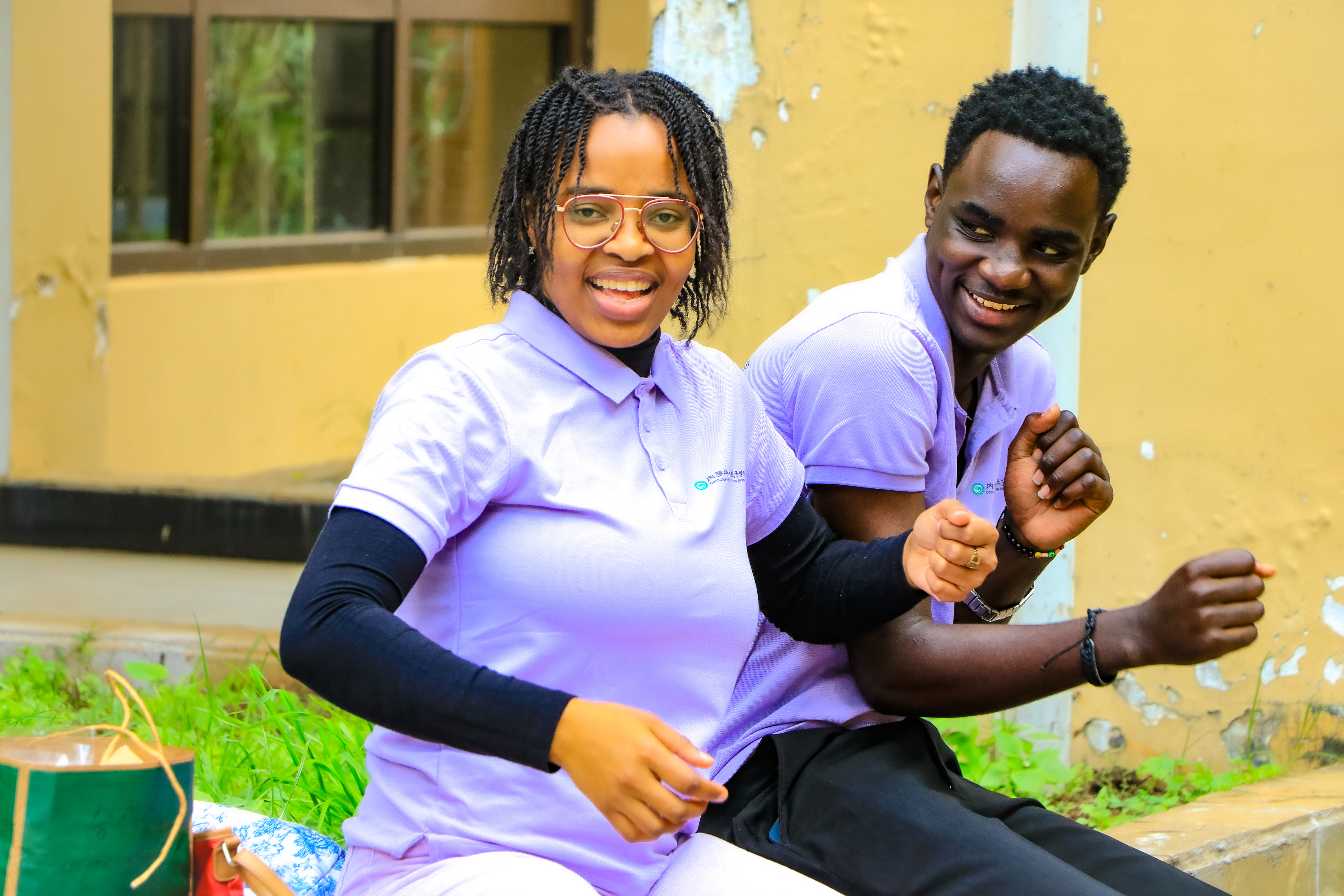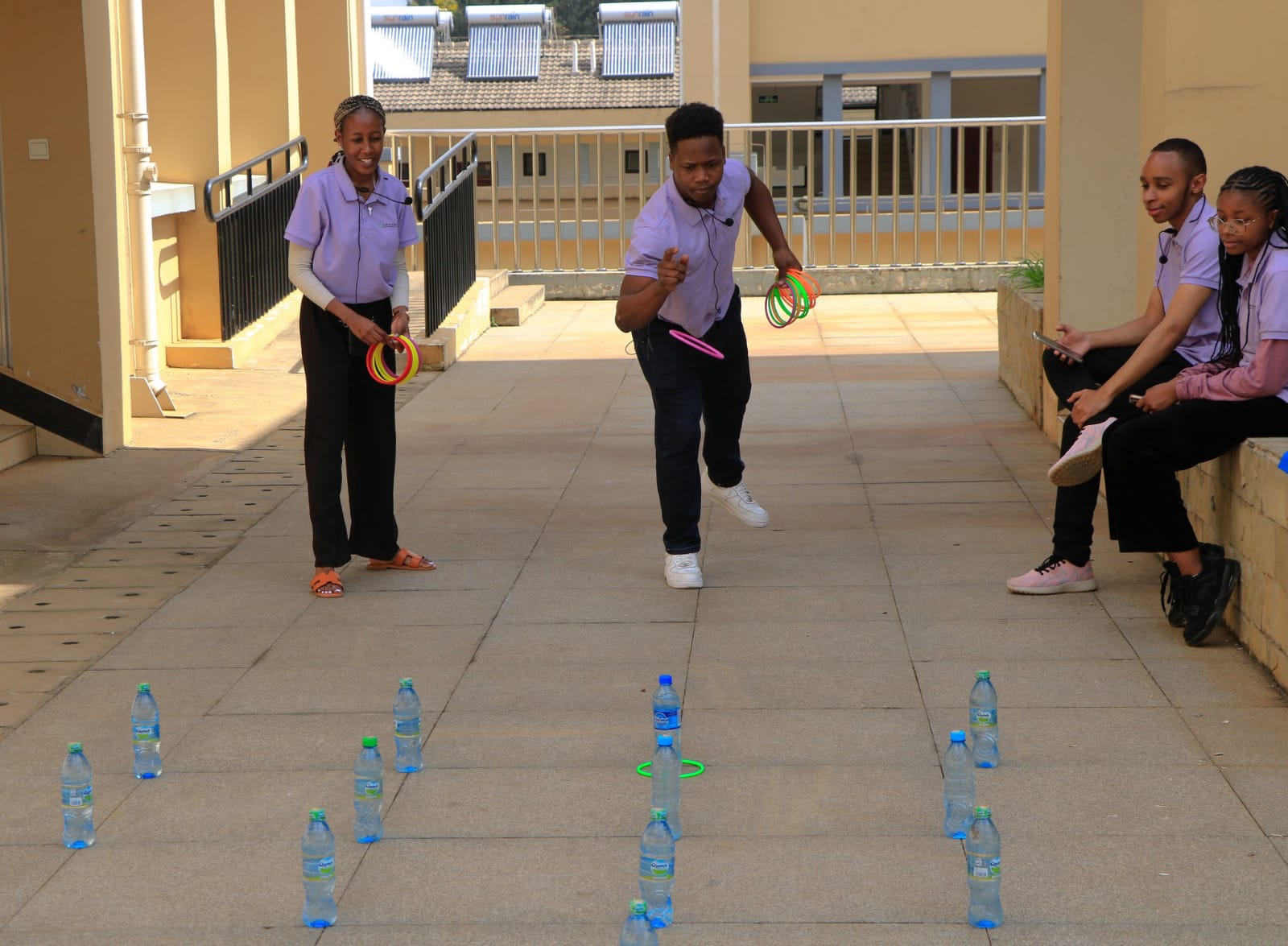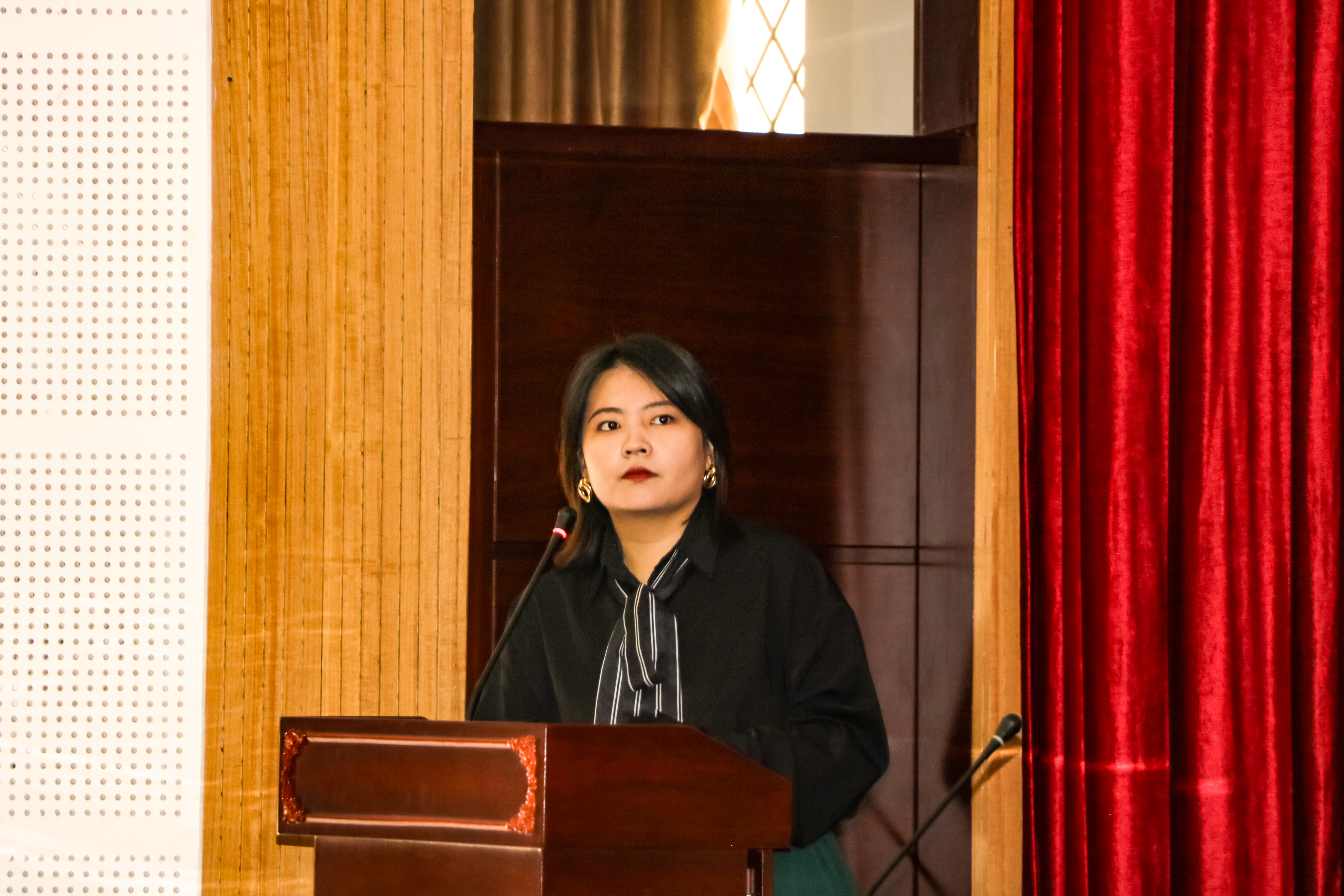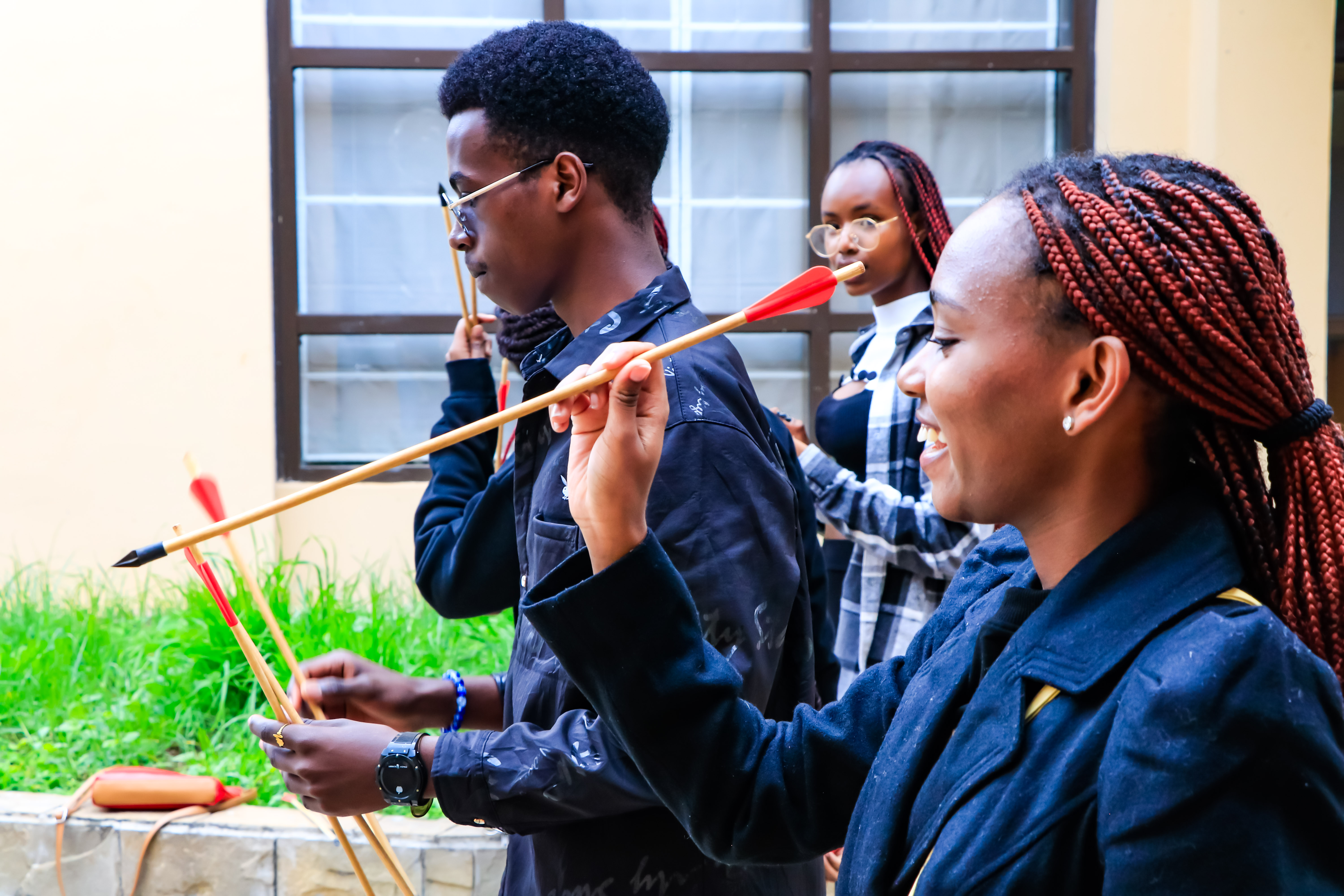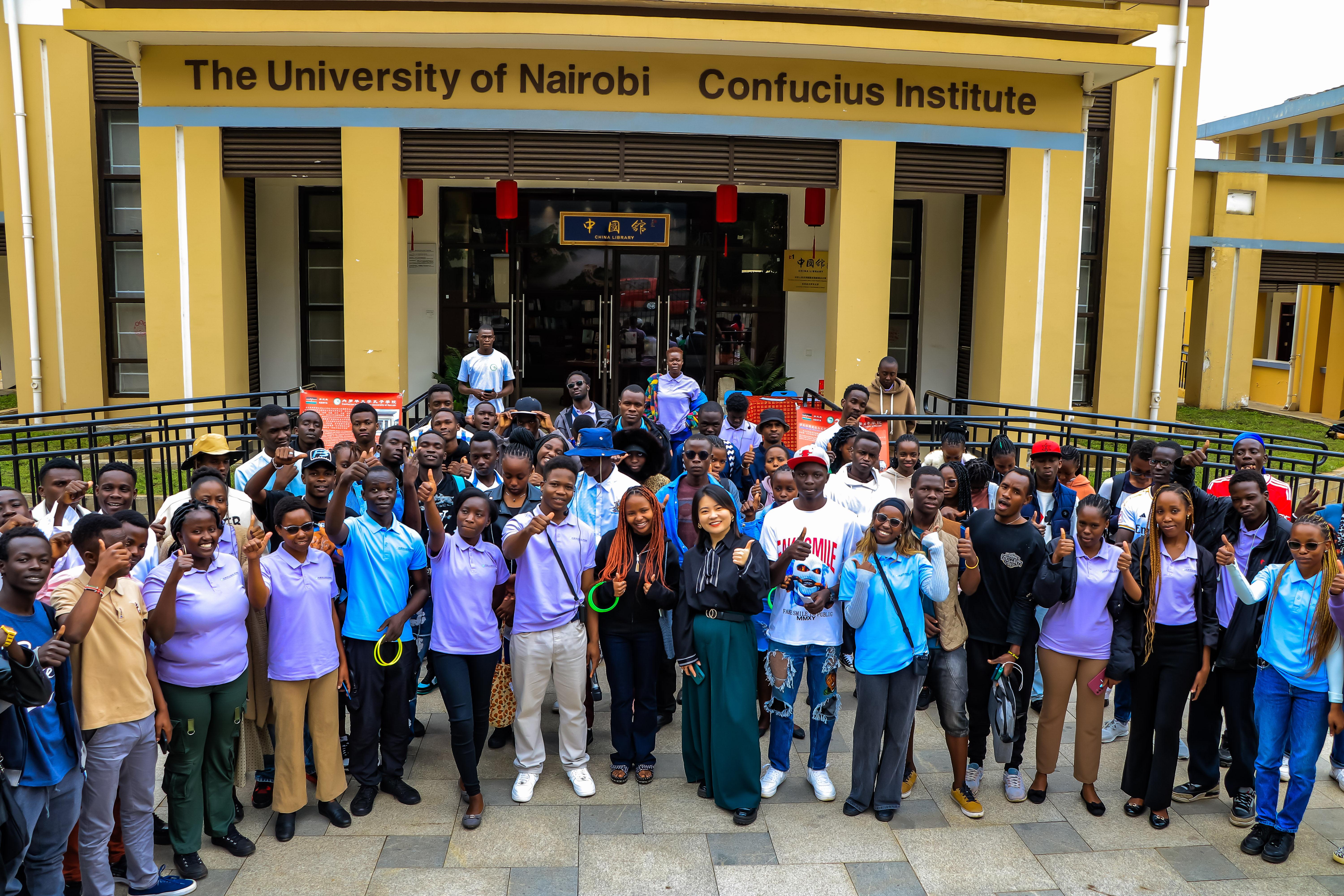
The Confucius Institute at the University of Nairobi (CIUoN) recently held a successful Open Day event, offering students an opportunity to explore Chinese culture. Held from the 27th to the 30th of August and again from the 3rd to the 6th of September, the event saw participation from students across eight different Campuses: the ADD campus (Faculty of Built Environment and Design), the American Wing, Main Campus, Kenya Science, Faculty of Agriculture, Chiromo, and Kikuyu. A smaller version of the event was also hosted at UoN’s Mombasa Campus, with the Kisumu Campus engaging virtually.
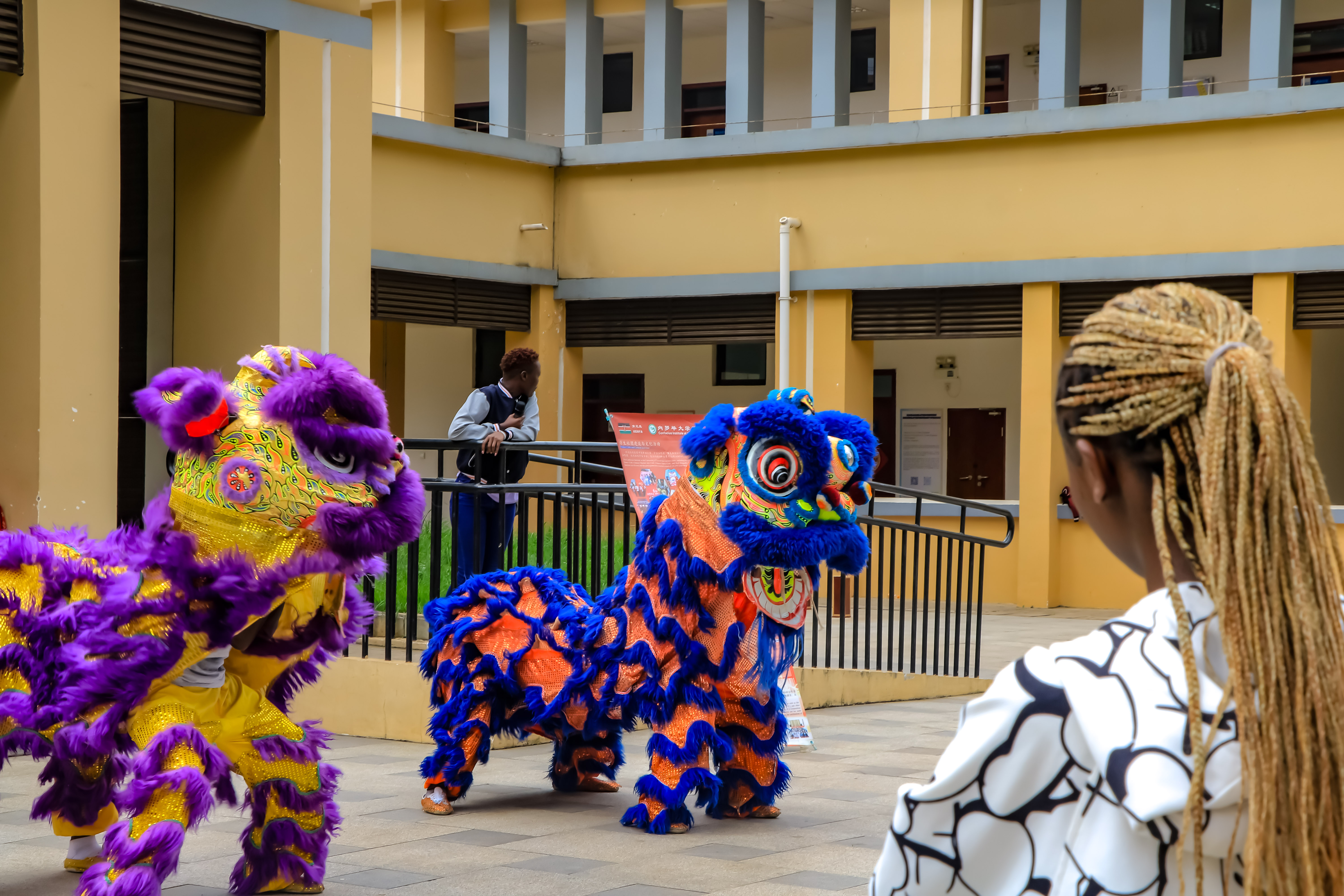
The Open Day kicked off with students signing up and participating in a raffle, where one lucky student won a stuffed panda, symbolizing peace and friendship in Chinese culture. Following the raffle, attendees were treated to a traditional Lion Dance performance, which was believed to bring good luck and was reserved for special occasions. The dancers and guides were students from the Confucius Institute, who are studying Chinese at various levels.
Students were then divided into groups and taken on a guided tour of the Confucius Institute’s facilities, including the China Library, Auditorium, Classrooms, and Computer Lab. At each stop, they experienced different aspects of Chinese culture through interactive activities:
- Chinese Calligraphy: Students tried their hand at calligraphy, an art form that has evolved from ancient Chinese writing, which involved writing Chinese characters using brush and ink.
- Chinese Dance: Students were introduced to this artistic dance (Xuě Lóng Yín), which gained global attention during the 2022 Beijing Winter Olympics. The dance is performed with fans, combining traditional Chinese dance with modern dance, and was taught by CIUoN students.
- Carved and Wood Painting: A traditional Chinese folk art with a long history in China. Students participated by making copies of poems and painting images of dragons and pandas—symbols of strength and peace, respectively.
- Games:Ring toss, Pot throwing (played in ancient China), and the Chinese version of musical chairs (Qiǎng Yǐzi). These games encourage interaction among participants.
At the auditorium, students attended a briefing led by Director Wang Shangxue and other faculty members. They highlighted the growing demand for Chinese language skills in various sectors, including translation, business, and diplomacy. Various scholarship programs (1 semester/1 year, bachelor’s, master’s, and doctorate) in China were also announced, where successful applicants would have the opportunity to study in China. This news was especially well-received by first-year students, eager to take advantage of the opportunity.
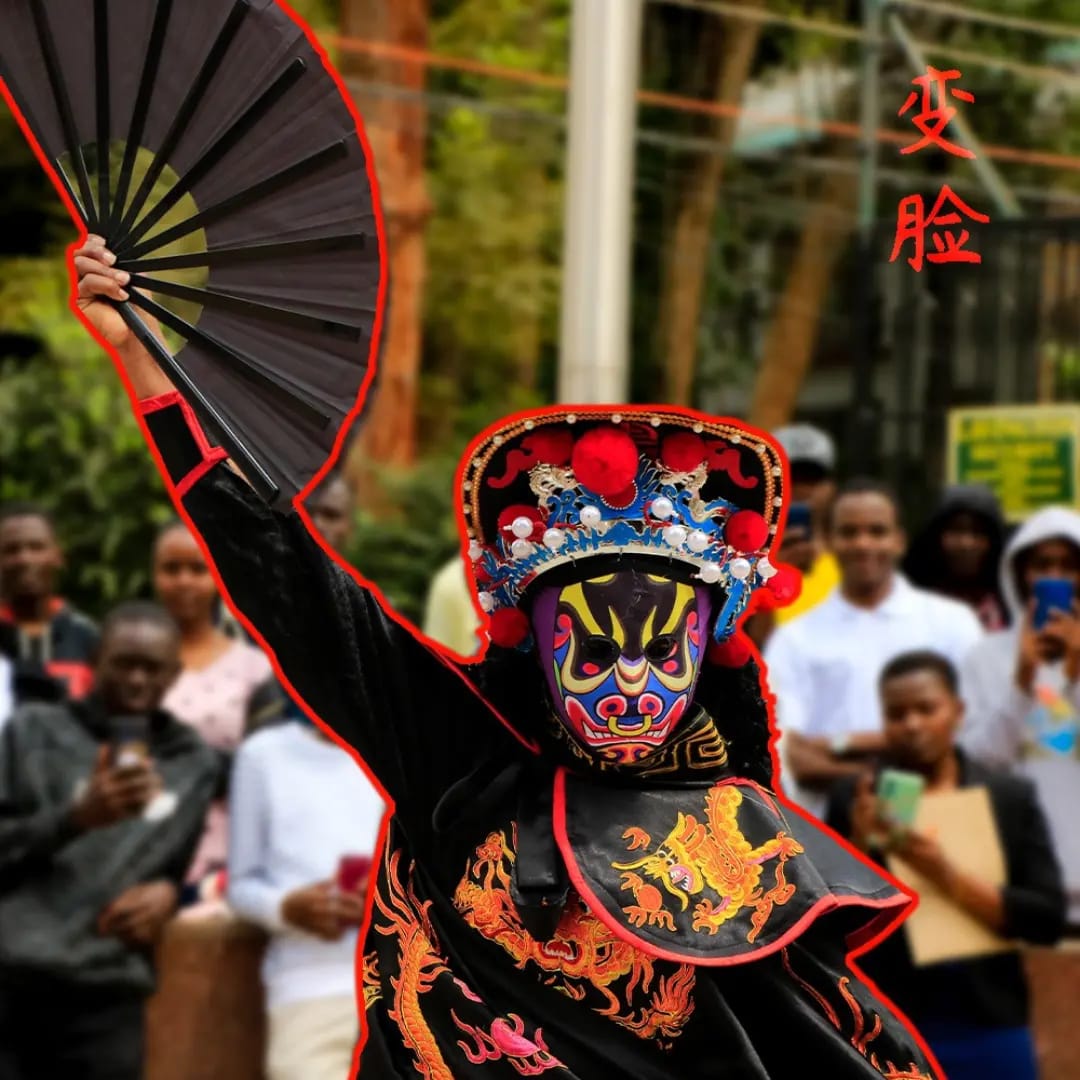
The Open Day also featured a Face-Changing Performance, a unique form of Chinese opera in which the performer rapidly changes masks to represent different characters. Originating in the Qing Dynasty, this art form captivated the audience with its seamless transformations.
This engagement led to 373 students signing up for entry-level Chinese (HSK 1) by the time this article was written.
The variety and depth of the cultural experiences offered were impressive. The Confucius Institute Open Day provided an enriching introduction to Chinese traditions, leaving a lasting impact on students who had the chance to immerse themselves in a different culture.